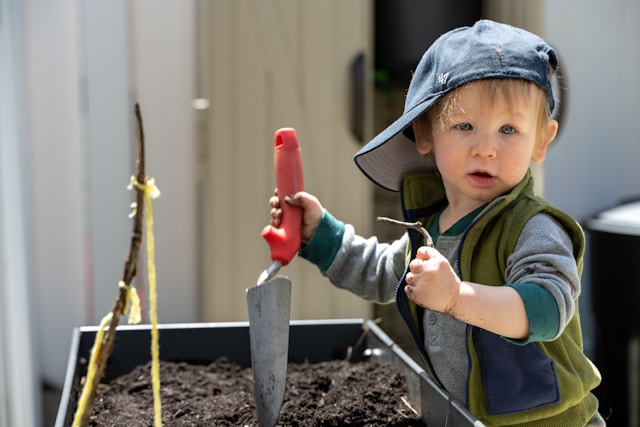
Needless to say, environmental issues are becoming increasingly critical. It’s not even just a scare tactic, but think about when you were younger, when you were a kid, even a younger adult, the weather and climate were different, right? Well, it’s real, and climate change is definitely happening. There’s been this push for the last few years for adults to make eco-friendly choices, but at the same time, it needs to be children doing this too.
Generally speaking, teaching children to incorporate eco-friendly practices into their daily lives is more important than ever. While yes, most likely, shows are telling kids to do it, it’s still best to actively initiate this, too. Besides, young children are naturally curious and eager to learn, making it the perfect time to introduce them to habits that benefit the planet.
But where do you even start? Well, here are some things you can explore: how you can help your children become more environmentally aware and adopt sustainable practices with ease and enthusiasm.
Teach Them About Leaks and Plumbing Issues
Children love to be little detectives, and what better mystery to solve than a leaky faucet? Well, a leak is just an example, but you have to keep in mind that kids, specifically young kids, don’t know what’s normal and what’s not. So you need to let them know about plumbing and how this uses water, including flushing the toilet, playing with sprinklers, baths, just all of it. It also helps to get them to know that water isn’t infinite, so it can’t be wasted. So, with all of that said, just get them to tell you about potential plumbing issues (and also get them to understand how they can prevent plumbing issues).
If you ever have to hire plumbers for something, such as a leak or pipe replacement (for example), you can probably also get them to talk to your little one about eco-friendly plumbing and water use practices. Most plumbers are really nice, and wouldn’t mind explaining to them. Besides, kids are usually more inclined to listen to professionals, too. At the end of the day, getting them to learn just helps with water conversation. Plus, kids will feel proud knowing they played a part in saving precious resources.
Teach Them to Turn Off the Water When Brushing Their Teeth
So this ties heavily in with the above, but kids and adults are all guilty of this! While sure, it might seem like a small thing, but turning off the water while brushing your teeth can make a significant difference in water conservation. All it really takes is just explaining to them that by turning off the tap, they’re helping to ensure there’s enough clean water for everyone, including plants and animals.
This not only makes them more aware of their water usage but also helps them understand the broader impact of their actions. Again, this actually wastes far more water than what you’re probably expecting, right?
Teach Them Where Food Comes From
Teaching children not to waste food can be a bit more challenging but equally rewarding. But yes, it’s super challenging for the most part because kids are super known for wasting their food (and playing with it).
So, you’ll need to start by explaining where food comes from, how it’s grown, and what happens if it’s wasted. A lot of parents will actually start getting their kids active in the backyard with them, so if you start attempting to grow food (even something as easy as micro-greens) then this could be nice way to get them to understand the growing process.
Teach Them How to Stop Wasting Food
Anyways, with that said, while getting them active on where food comes from is super important, that’s not the only thing either. You’ll also have to encourage them to take smaller portions and finish what’s on their plate. Kids are super guilty of having eyes that are bigger than their stomachs. But parents can also get creative by involving kids in meal planning and cooking, which helps them appreciate the effort that goes into preparing food.
Get Your Little Ones Into Composing
If you’re gardening with them, then this is the next thing you have to do! Plus, if you’re looking for another way to get your kid to take this seriously, composting scraps can help, too. Overall, you can’t force your kid to eat when they’re full (as this can give them issues with food later on). So, composting is a nice way to create some balance. So it’s about getting the to understand how leftovers into a resource rather than waste, showing children the cycle of sustainability.



